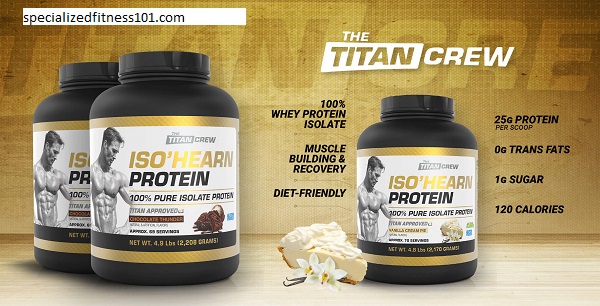Fitness First: A Health and Performance Guide to Nutrition:
This is where the things between nutrients provide the main basis for reaching fitness goals, such as weight loss, increased muscle, or even getting fit. Understanding the base of nutrition makes a huge difference in one’s journey to fitness. Here, the article goes in-depth into the principles of nutrition that can help fuel your fitness goals, such as what macronutrients and micronutrients are, how to make a meal plan, how to hydrate properly, and much more.

The Fundamentals of Nutrition:
Nutrition is the activity of providing the human body with all the nutrients necessary for the maximum performance of its functions. There are two broad classes of nutrients: macronutrients and micronutrients.
Macronutrients:
The macronutrients comprise nutrients needed in greater amounts and include:
These are usually the body’s primary fuel and come in the form of simple and complex carbs. Simple carbohydrates, such as sugars, are released and used as speedy fuel, while complex carbohydrates, like whole grains, provide sustained energy, with considerable amounts of fiber.
Proteins :
They are required for building and repairing muscles and have a lot to do with many of the body’s functions. They are produced from amino acids, which are the building blocks of proteins. Meat, fish, dairy products, legumes, and nuts come in some of the best forms of protein.
Fats:
Healthy fats provide the body with molecules needed for hormone production, nutrient absorption, and building blocks for cells. Healthy fats can be found in avocados, nuts, seeds, and olive oil.
Balancing these macronutrients will get you closer to your fitness goals. A common rule of thumb is to take in 45-65% of your daily calories from carbs, 10-35% from protein, and 20-35% from fats. Of course, this will differ depending on individual requirements and goals.
Micronutrients:
Micronutrients encompass vitamins and minerals. These are required in smaller amounts but are essential for optimal health. They have crucial roles in energy production, immune function, bone health, and cellular function in general. Examples of such include:
Vitamin C is used for immune health effects, and B vitamins play roles in energy metabolism.
Minerals: Such as calcium, for bone health and related functions; iron, for transport of oxygen in blood.
A healthy, balanced diet rich in fruits, vegetables, whole grains, lean proteins, and healthy fats will, in most cases, give you the necessary micronutrients.
Meal Planning Significance:
Planning good meals forms an important nutrition aspect for any fitness enthusiast since it ensures that you are receiving the proper amount of nutrients for maintaining your fitness goals.
Goal Setting:
Before you begin to create a meal plan, decide what you want to accomplish about fitness. Do you want to lose body fat, gain muscle, or simply maintain your current weight? Your goals will dictate both how many calories to consume and how those calories should be divided between your macronutrients.

Creation of A Balanced Meal Plan:
A balanced meal plan should feature an assortment of foods to achieve the delivery of nutrients. This is how you would construct a healthy meal plan:
Set Priorities on Whole Foods:
Concentrate on nutrient-dense, minimally processed whole foods, like fruits, vegetables, whole grains, lean proteins, and healthy fats.
Variety Matters:
A large variety of foods will ensure that you receive a wide range of nutrients. Try different fruits, veggies, and protein sources.
Plan Convenience:
Plan your meals and snacks. Then healthy eating might become more manageable by getting extra time with batch cooking and meal prepping for later.
Listen to Your Body:
Let yourself tune into your hunger cues and your physical energy to determine the proper amount to be consumed and the frequency of meal times.
Hydration:
Hydration also plays an important role in managing weight. Actually, it can play a greater role because about 20-30% of every calorie consumed is always used as water.
Hydration is one of those necessities that get neglected in today’s life, yet plays a very important role in one’s nutrition and health. It aids the process of digestion, the rate at which absorption of nutrients takes place, and regulates the temperature inside the body. Well-hydrated individuals seem to function and recover way better.
Hydration Recommendations:
Water Intake per Day. A general rule of thumb is to drink at least 8-10 cups or 2-2.5 liters of water each day. Of course, it will depend on the activity level, heat, and your size.
Pre, During, and Post-Exercise: Stay hydrated before, during, and after exercise to support performance and recovery. For long or intense workouts, electrolyte replacement drinks might be helpful.
Supplements:
Do I Need Them?
You can get all the necessary nutrients from food. Sometimes, though, specific supplements may help people. Use them when you have a known deficiency or if you’re training for a specific objective.
Most Popular Supplements:
Protein Powders:
Can be useful for those individuals who cannot get enough protein from their nutrition sources, especially after an exercise routine has taken place.
Multivitamins:
To close in on any nutritional deficiencies though they are not a replacement for good nutrition.
Creatine: One of the most used supplements by strength training athletes to build up increased muscle mass and strength.
Omega-3 fatty acids:
Extremely good for heart health and may have positive effects on recovery as well.
Better to consult with your doctor before you choose some supplements because too much supplementation can cause harm.

The Mind-Body Connection:
Nutrition isn’t just about what you consume but also about your mental and emotional well-being. Your attitude toward food perception of it and even how it makes you feel is what changes your fitness course.
Mindful Eating:
Mindful eating will also make your relationship with food healthier with which choices you will have to make.
These include:
Eating Slowly:
Food would take much longer to digest, thus avoiding overeating.
Pay Attention to Your Hunger Cues:
Listen to what your body says about when you are hungry versus full.
Be Present:
Eat without distractions, such as screens.

